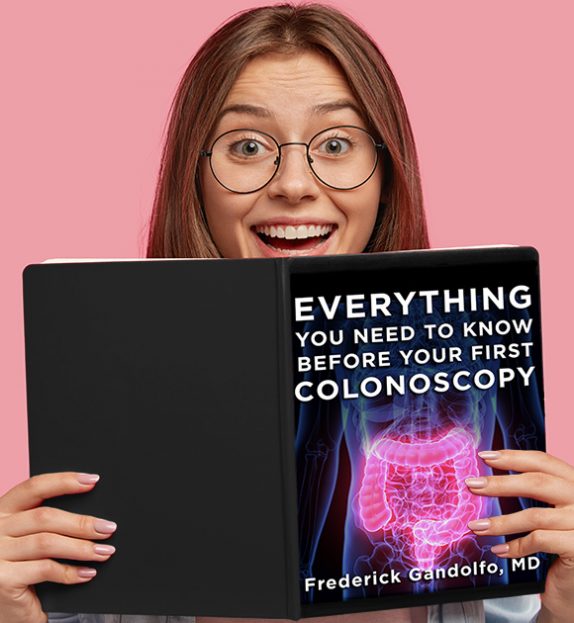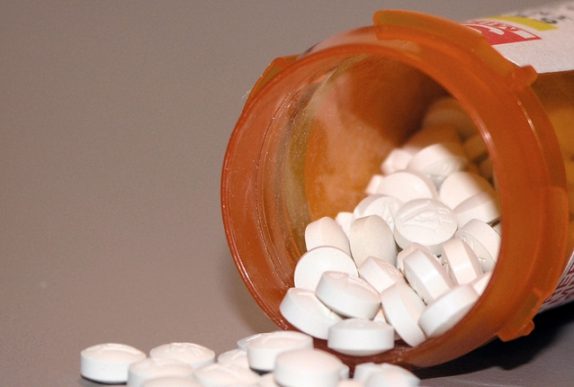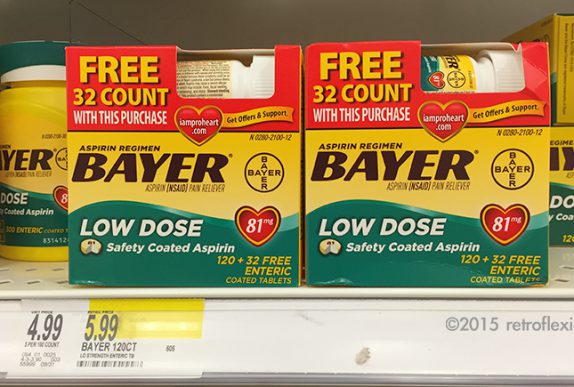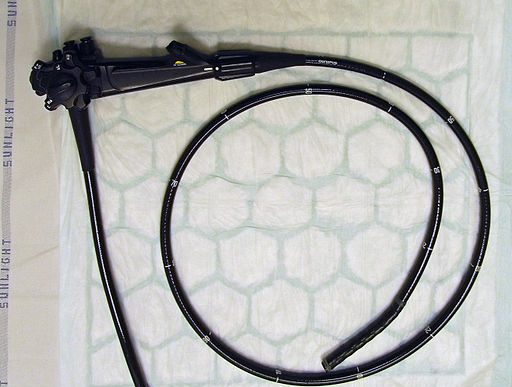Every question you could ask about colonoscopy, answered!
So what about me? Why did I choose to get sedation? Surely I could have toughed-out the pain of the procedure, right? I truthfully think I would have been fine without sedation. However there is one thing that I've learned from being a physician who does procedures for a living: Sometimes there are unintended bad consequences of going against the standard of care.
Why wouldn't a fellow endoscopist sent their patients for a procedure that is as effective, safer, with no significant recovery time, and far less expensive when compared to surgery?
With all this talk about bleeding, it should come as no surprise that "Should I stop my aspirin?" is one of the more common questions that I get asked by patients who are being seen to arrange screening colonoscopy. Luckily, this question has been answered already by several of the gastroenterology societies. For the average patient on aspirin...
It is sometimes an awkward conversation to have, but the truth is that at a certain age, we eventually stop checking people for things that may cause them future harm.
Clearly, the screening guidelines recommend repeating a negative colonoscopy in ten years. Now what if I told you that many (if not most) practicing gastroenterologists recommend repeating the test in five years, not ten?
For many years, the effect of NSAIDs on preventing colon cancer has been described. There are numerous studies showing a small but mostly consistent decrease in both the development of polyps, and the development of colorectal cancer with chronic NSAID use. However, thus far there has not been a recommendation to take NSAIDs specifically with the goal of reducing the development of colon cancer, since the risk of chronic NSAID use is thought to outweigh any benefit in cancer prevention.
Overtesting and over treatment are big problems in modern medicine. It sometimes goes like this: Have a minor complaint? It's probably nothing, but we should do an exhaustive workup because there is a 0.00001% chance it could be cancer, maybe. However,
Some people seem to get "stomach bugs" all the time, while other people rarely have these issues. Vomiting, abdominal pain, fever, and diarrhea are the common symptoms of a variety of enteric infections that often start after the soon-to-be victim ingests the infectious organism. These bacteria have wonderful names like Salmonella, Shigella, Campylobacter, E. coli, Vibrio, and C. difficile, just to name a few. The symptoms of gastroenteritis and infectious colitis can range from a minor annoyance to life-threatening dehydration due to ongoing vomiting and diarrhea.
There has been concern for several years about commonly prescribed antacid drugs called proton pump inhibitors (PPIs) and the heart. PPIs are used to treat gastroesophageal reflux disease (GERD), peptic ulcer disease, and other acid-related diseases. Common drugs in the PPI class are omeprazole (Prilosec), esomeprazole (Nexium), pantoprazole (Protonix), lansoprazole (Prevacid), and dexlansoprazole (Dexilant), among … Read more
There have been a lot of reports surfacing recently regarding strange infections associated with endoscopy. At the time of publication of this article, there have been about 135 confirmed cases of infection with Carbepenem-resistant Enterobacteriaceae (CRE), which are mainly multi-drug resistant E. coli and Klebsialla species. These infections are relatively rare in general, and are very problematic … Read more










